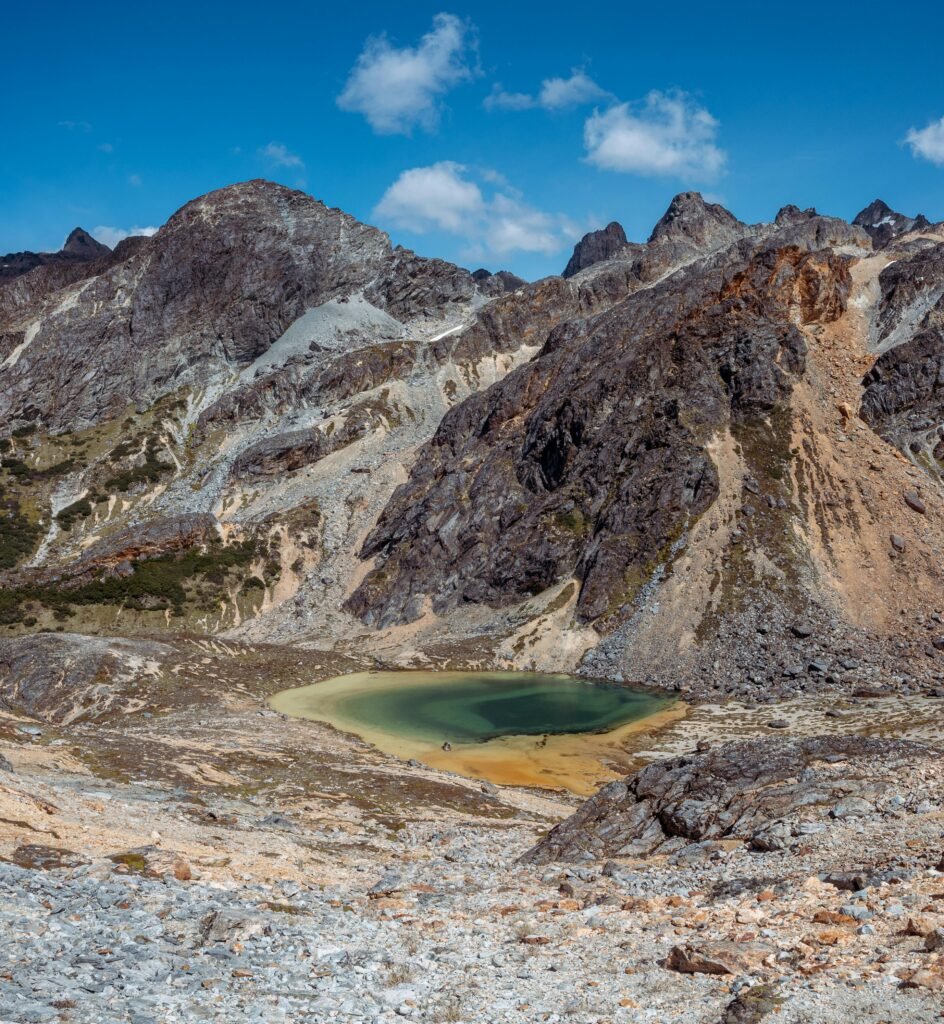Whether you’ve already fallen in love with the crystal-clear waters and sun-soaked beaches of the Caribbean or you’re planning your second visit to this paradise, this article is a must-read for you. Packed with essential tips and insider knowledge, we’ve got you covered to make your return trip to the Caribbean even more memorable and enjoyable. From exploring off-the-beaten-path islands to immersing yourself in the vibrant local culture, get ready for an unforgettable adventure in this tropical haven.

Choosing the Right Time to Visit
Consider the Weather Patterns
When planning your trip to the Caribbean, it’s crucial to take the weather patterns into consideration. The region experiences a tropical climate, which means that it can be hot and humid year-round. However, there are certain seasons that are more prone to hurricanes and heavy rainfall, so it’s essential to plan accordingly.
The peak hurricane season in the Caribbean typically runs from June to November, with the highest chance of storms occurring between August and October. While it’s impossible to predict the exact weather conditions, visiting during these months can pose potential disruptions to your travel plans. If you’re looking to avoid the risk of hurricanes, it is advisable to plan your trip between December and May when the weather is generally more stable.
Avoid Peak Tourist Season
The Caribbean is a popular vacation destination, attracting tourists from all over the world. If you prefer a more serene and less crowded experience, it’s advisable to avoid the peak tourist season. This typically coincides with the winter months when travelers from colder climates flock to the region to escape the cold.
The peak tourist season in the Caribbean generally runs from December to April, with the busiest period being around Christmas and New Year. During this time, the popular tourist attractions, beaches, and resorts can be crowded, and prices may be higher. To enjoy a more peaceful and relaxed vacation, consider visiting during the shoulder seasons of May, June, November, or the off-peak season of July and August.
Plan Around Local Festivals and Events
One of the best ways to immerse yourself in the vibrant culture of the Caribbean is by planning your trip around local festivals and events. Each island in the Caribbean boasts its own unique traditions and celebrations, providing visitors with a chance to experience the colorful and lively spirit of the region.
From Carnival in Trinidad and Tobago to the Junkanoo Festival in the Bahamas, there is always something happening in the Caribbean. These festivals showcase local music, dance, food, and art, creating an atmosphere of joy and celebration. By aligning your visit with these events, you can truly enhance your cultural experience and create memories that will last a lifetime.
Researching Your Destination
Explore Different Islands and Their Unique Features
The Caribbean is made up of multiple islands, each offering its own distinct character and attractions. Before deciding on which island to visit, take the time to research and explore the different options available.
From the vibrant nightlife of Jamaica to the pristine beaches of the Bahamas, and the lush rainforests of Dominica, there is something for everyone in the Caribbean. Consider what activities and experiences are most important to you and choose an island that aligns with your preferences. Whether you’re seeking relaxation, adventure, or a combination of both, the Caribbean has it all.
Find the Best Beaches and Activities
One of the main draws of the Caribbean is its stunning beaches and abundance of outdoor activities. Whether you’re a beach lover or an adventure seeker, there is no shortage of options to keep you entertained.
Research the best beaches in the Caribbean and identify the ones that align with your preferences. Some islands are known for their pristine white sands and crystal-clear waters, while others offer more secluded and untouched coastal landscapes. From surfing and snorkeling to sailing and fishing, there are endless ways to make the most of the Caribbean’s natural beauty.
Learn About the Local Culture and Customs
To truly appreciate and understand the Caribbean, it’s essential to learn about the local culture and customs. Each island has its own unique traditions, music, cuisine, and history, which contribute to the vibrant tapestry of the region.
Take the time to read about the history of the islands you plan to visit, learn about the local customs and traditions, and familiarize yourself with the local dialects. This will not only enhance your overall experience but also show respect to the local communities you interact with during your trip.
Booking Accommodation
Look for Deals and Discounts
When it comes to booking accommodation in the Caribbean, it’s important to be smart and strategic. With so many options available, it’s worth taking the time to research and find the best deals and discounts.
Start by checking various travel websites and hotel booking platforms for promotions or package deals that may offer discounted rates. Signing up for newsletters or following social media pages of hotels and resorts can also provide you with exclusive deals and limited-time offers. Additionally, consider booking during the off-peak season when prices may be lower.
Consider All-Inclusive Resorts for Convenience
If you’re looking for convenience and a hassle-free experience, consider staying at an all-inclusive resort. These resorts typically offer a wide range of amenities, including meals, drinks, activities, and entertainment, all included in the package price.
Staying at an all-inclusive resort eliminates the need to worry about meal planning and budgeting for additional expenses. It allows you to relax and enjoy the facilities and services offered by the resort without constantly reaching for your wallet. However, keep in mind that all-inclusive resorts may not provide the same level of cultural immersion as staying at smaller boutique hotels or guesthouses.
Explore Villa Rentals for More Privacy and Space
If you prefer a more independent and private experience, consider exploring villa rentals in the Caribbean. Villas provide the opportunity to have your own space, with amenities such as private pools, kitchens, and multiple bedrooms.
Villa rentals are ideal for families or large groups traveling together who want to enjoy each other’s company in a spacious and comfortable setting. They also allow for more flexibility in terms of meals and daily routines. Many villa rental agencies have properties located in prime beachfront or hillside locations, offering breathtaking views and easy access to the island’s attractions.
Packing Essentials
Pack Lightweight and Breathable Clothing
When packing for your trip to the Caribbean, it’s important to consider the climate and pack lightweight and breathable clothing. The Caribbean’s tropical climate means that temperatures can be high, and the humidity can be intense.
Opt for loose-fitting clothes made from natural fibers such as cotton or linen that allow your skin to breathe. Light-colored clothing can help reflect the sun’s rays and keep you cooler. Pack a mix of shorts, t-shirts, sundresses, and lightweight pants to suit various activities and occasions. Remember to also include a few versatile pieces for cooler evenings or air-conditioned environments.
Bring Sun Protection
The Caribbean is known for its abundant sunshine, so it’s crucial to bring adequate sun protection. Sunscreen with a high SPF (sun protection factor) is a must, as the sun’s rays can be very strong in the region.
Choose a broad-spectrum sunscreen that protects against both UVA and UVB rays and apply it generously and frequently, especially if you plan to spend time outdoors or in the water. Additionally, bring a wide-brimmed hat, sunglasses with UV protection, and lightweight, long-sleeved shirts or cover-ups for added sun protection.
Don’t Forget Insect Repellent
While the Caribbean is a tropical paradise, it does have its share of pesky insects, such as mosquitoes. To protect yourself from bites and potential diseases, it’s important to pack insect repellent.
Choose a repellent that contains DEET or other recommended ingredients, and apply it to exposed skin before heading outdoors. Additionally, consider packing lightweight, long-sleeved clothing and long pants to provide an extra barrier against mosquitos, particularly during dawn and dusk when they are most active.

Preparing for Tropical Climate
Stay Hydrated and Drink Plenty of Water
The tropical climate of the Caribbean can be quite hot and humid, which means it’s crucial to stay hydrated. Drink plenty of water throughout the day to prevent dehydration and help your body adjust to the warmer climate.
Carry a reusable water bottle with you and refill it regularly, especially when you’re out exploring or participating in outdoor activities. If you’re unsure about the quality of tap water on the island you’re visiting, opt for bottled water instead.
Protect Yourself from the Sun
With its abundant sunshine, the Caribbean can be a paradise for sun lovers. However, it’s important to take precautions to protect yourself from the sun’s harmful rays.
In addition to wearing sunscreen, seek shade during the hottest parts of the day, typically between 10 a.m. and 4 p.m. Wear a wide-brimmed hat, sunglasses, and lightweight, long-sleeved clothing for additional protection. Consider bringing a beach umbrella or a portable sun shelter for added shade on the beach.
Be Prepared for Unexpected Rain Showers
While the Caribbean is known for its sunshine, it’s important to be prepared for unexpected rain showers. The tropical climate can bring sudden downpours, which can last for a short period or persist for a few hours.
Pack a lightweight, waterproof jacket or poncho that can easily be carried in your bag. This will allow you to continue exploring and enjoying outdoor activities even if it rains. Don’t let a little rain dampen your spirits – embrace it as a part of the tropical experience.
Navigating Transportation
Rent a Car for Flexibility and Freedom
Renting a car can offer you flexibility and freedom when exploring the Caribbean. It allows you to easily navigate the islands at your own pace, stopping at scenic viewpoints or secluded beaches along the way.
Be sure to check the driving requirements and regulations for the specific island you’re visiting, as they may vary. Some islands drive on the left side of the road, while others drive on the right. If you decide to rent a car, familiarize yourself with the local traffic rules and watch out for the occasional potholes and uneven road surfaces.
Consider Using Public Transportation
Using public transportation is an affordable and convenient option for getting around the Caribbean. Many islands have a well-developed public transportation system, including buses and minibusses, which can take you to popular tourist spots and local attractions.
Buses are often a cost-effective way to travel between towns or cities, allowing you to experience the local culture and interact with the friendly locals. Keep in mind that bus schedules may vary, so it’s advisable to check the timings in advance. On smaller islands, taxis or shared minibusses known as “route taxis” are popular modes of transportation, offering a more personalized service.
Book Airport Transfers in Advance
To ease the stress of arriving at a new destination, consider booking airport transfers in advance. Many hotels and resorts offer this service, which ensures that you have a seamless journey from the airport to your accommodation.
Booking airport transfers in advance allows you to relax and enjoy the ride without worrying about navigating unfamiliar roads or dealing with transportation logistics. It’s particularly beneficial if you’re arriving late at night or have a lot of luggage. Check with your accommodations for the availability of airport transfers and make the necessary arrangements before your trip.

Staying Safe and Healthy
Follow Basic Safety Precautions
When traveling to any destination, including the Caribbean, it’s important to follow basic safety precautions to ensure a safe and memorable trip. Be aware of your surroundings, especially in crowded areas or unfamiliar neighborhoods.
Avoid displaying valuable belongings and keep your personal belongings secure at all times. Use lockers or safes provided by your accommodations to store your passport, cash, and other important documents. It’s also advisable to carry a photocopy or digital copy of your travel documents in case of loss or theft.
Take Necessary Vaccinations
Before traveling to the Caribbean, it’s essential to check if any vaccinations are recommended or required. Depending on your home country and the specific island you’re visiting, certain vaccines might be necessary to protect against diseases such as Hepatitis A, Typhoid, or Yellow Fever.
Consult with your healthcare provider or visit a travel clinic well in advance of your trip to ensure you have the necessary vaccinations and medications. Carry a copy of your vaccination records with you during your trip as some countries may require proof of immunization upon arrival.
Be Mindful of Local Wildlife
The Caribbean is home to a diverse array of wildlife, both on land and in the sea. While it’s exciting to encounter these unique creatures, it’s important to be mindful of their habitats and respect their space.
Avoid feeding or touching wildlife, as doing so can disrupt their natural behaviors and even be harmful to their health. If you’re interested in exploring the marine life through snorkeling or diving, follow established guidelines to protect the coral reefs and marine ecosystem. Choose eco-friendly tour operators and activities that prioritize the well-being of the wildlife and environment.
Exploring Local Cuisine
Try Traditional Caribbean Dishes and Drinks
One of the highlights of visiting the Caribbean is indulging in the delicious and diverse local cuisine. From aromatic jerk chicken in Jamaica to fresh seafood in Barbados, the region offers a culinary experience like no other.
Make it a point to try traditional Caribbean dishes such as conch fritters, roti, callaloo, and plantains. Sample local fruits like mangoes, papayas, and passion fruit, and quench your thirst with refreshing tropical drinks like rum punch or coconut water. Embrace the flavors and spices of the Caribbean and expand your culinary horizons.
Visit Local Markets and Street Food Stalls
To truly immerse yourself in the local food culture, make a visit to the bustling markets and street food stalls scattered across the Caribbean islands. These vibrant hubs of activity offer an authentic glimpse into the local way of life.
Browse through the colorful displays of fruits, vegetables, spices, and handicrafts, and strike up conversations with the friendly vendors. Sample local snacks and street food delicacies like doubles in Trinidad or saltfish fritters in the Dominican Republic. Not only will you get to taste the flavors of the Caribbean, but you’ll also support local businesses and artisans.
Make Reservations at Acclaimed Restaurants
For a special culinary experience, make reservations at acclaimed restaurants in the Caribbean. Many islands boast a thriving food scene with talented chefs who are putting their own spin on traditional Caribbean ingredients and flavors.
Research and book restaurants in advance to secure a spot at popular establishments. Indulge in a gourmet meal prepared with fresh local ingredients, enjoy impeccable service, and savor the innovative culinary creations of these talented chefs. Fine dining in the Caribbean offers a unique blend of international influences and local flavors, providing a feast for the senses.
Interacting with Locals
Learn Common Greetings and Phrases
When visiting any destination, it’s always appreciated when visitors make an effort to learn and use common greetings and phrases in the local language. In the Caribbean, English is widely spoken, but many islands also have their own unique dialects.
Take the time to learn basic greetings such as “good morning,” “good afternoon,” and “thank you,” as well as polite phrases like “please” and “excuse me.” This simple gesture can go a long way in establishing a friendly rapport with the locals and showing respect for their culture.
Respect Local Customs and Traditions
The Caribbean is a diverse region with a rich tapestry of customs and traditions. When interacting with locals, it’s important to be respectful and mindful of their cultural practices.
Observe and follow any dress codes or etiquette guidelines when visiting religious sites, such as covering your shoulders or removing your shoes. Ask for permission before taking photos of individuals, particularly in rural or remote areas where some may be more reserved. Be open-minded and embrace the differences you encounter, leaving any expectations or stereotypes at the door.
Engage in Local Activities and Experiences
To truly get a taste of Caribbean life, engage in local activities and experiences during your visit. Participate in traditional dances like salsa or soca, take a cooking class where you can learn to prepare local dishes, or learn a traditional craft like basket weaving.
Attend local music festivals or performances, where you can groove to the rhythm of calypso or reggae. Join guided tours or workshops led by locals to gain a deeper understanding of the island’s history, folklore, or natural wonders. By immersing yourself in the local culture and embracing these experiences, you’ll create meaningful connections and memories that will last a lifetime.
Responsible Tourism Practices
Minimize Ecological Footprint
When visiting a delicate ecosystem like the Caribbean, it’s important to minimize your ecological footprint and preserve the natural beauty of the region. The Caribbean is home to an abundance of coral reefs, marine life, and national parks, all of which need to be protected for future generations.
Practice responsible tourism by staying on designated trails, avoiding littering, and properly disposing of waste. Choose reef-safe sunscreen to protect the coral reefs from harmful chemicals. Limit your use of single-use plastics and opt for reusable alternatives. Support eco-friendly accommodations and tour operators that prioritize sustainable practices. By being mindful of your impact on the environment, you can play a part in preserving the Caribbean’s natural treasures.
Support Local Businesses and Artisans
One of the ways to ensure that your tourism dollars have a positive impact on the local communities in the Caribbean is by supporting local businesses and artisans. Seek out locally owned restaurants, shops, and accommodations that promote sustainable practices and provide employment opportunities for locals.
Purchase souvenirs and handicrafts directly from local artisans, ensuring that your money goes directly to the people who create these unique products. This not only supports the local economy but also helps preserve traditional crafts and cultural heritage. By supporting local businesses, you contribute to the overall well-being of the community and create a more authentic and sustainable tourism experience.
Respect Marine Life and Coral Reefs
The Caribbean is renowned for its stunning coral reefs and diverse marine life. To ensure the long-term health and preservation of these delicate ecosystems, it’s important to treat them with respect and care.
When snorkeling or diving, avoid touching or stepping on the coral, as this can cause irreparable damage. Be mindful of your fins and equipment to prevent accidental contact. Do not feed or chase marine animals, and maintain a safe distance to observe them without causing stress or harm. By practicing responsible snorkeling and diving, you can help protect the incredible biodiversity that makes the Caribbean’s waters so remarkable.
In conclusion, the Caribbean offers a diverse array of experiences for returning visitors. By choosing the right time to visit, researching your destination, booking accommodation wisely, packing essentials, preparing for the tropical climate, navigating transportation, staying safe and healthy, exploring local cuisine, interacting with locals, and practicing responsible tourism, you can make the most of your trip to this tropical paradise. So pack your suitcase, embark on your Caribbean adventure, and get ready to create lasting memories in this vibrant and welcoming region.


